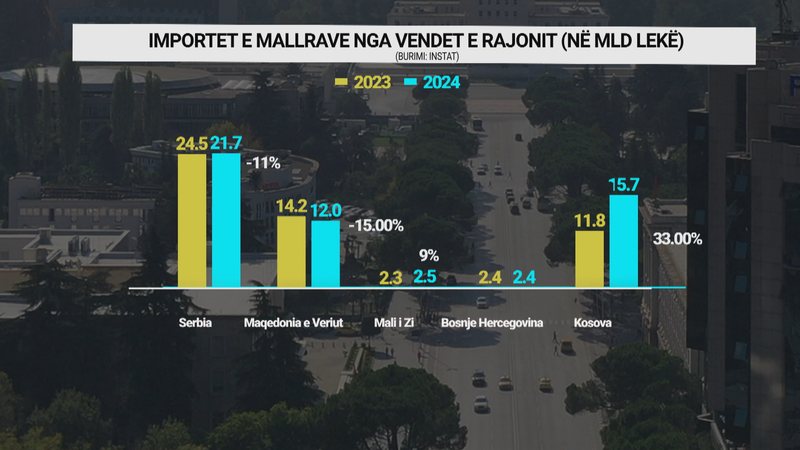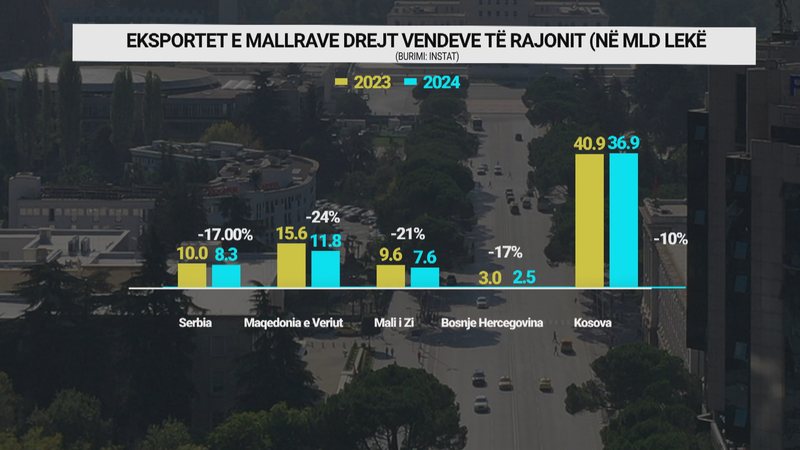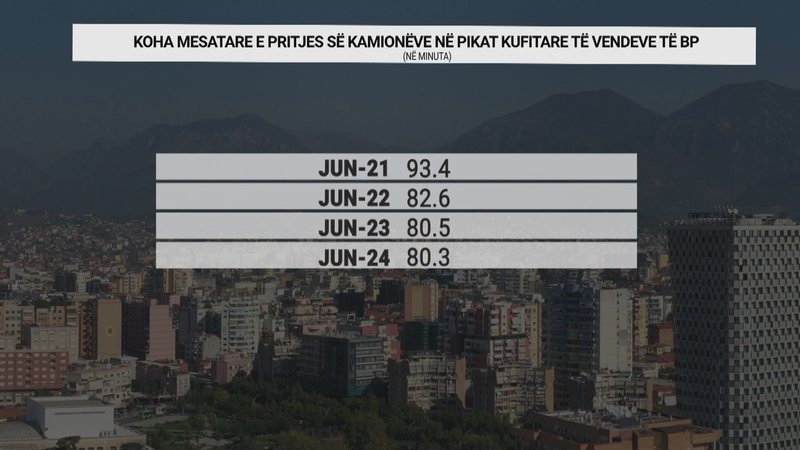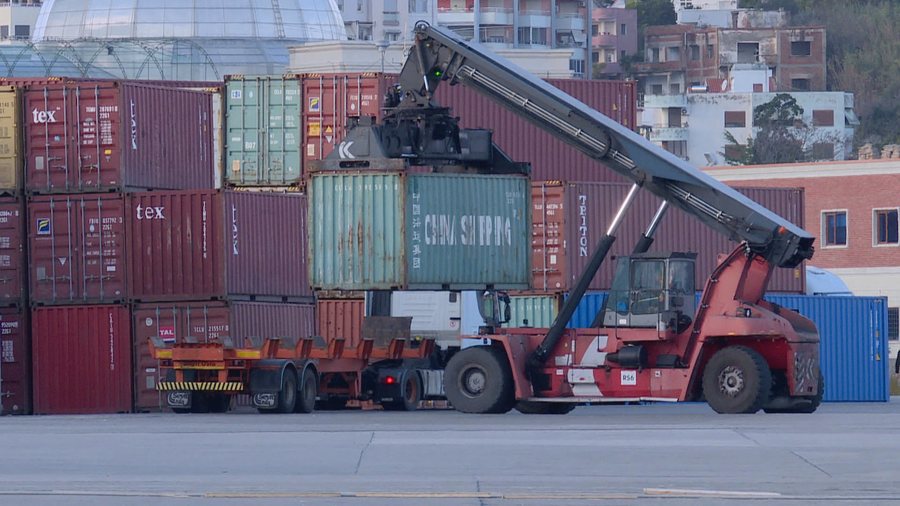
Initiatives and agreements that give way to each other, ministerial and summits that conclude with commitments to cooperation, but the latter is not happening. On the contrary! The six Western Balkan countries are moving away from each other, at least in one direction... that of foreign trade. Data from the Institute of Statistics show that imports from Serbia, Montenegro, North Macedonia and Bosnia and Herzegovina last year fell by an average of 20 percent compared to 2023.
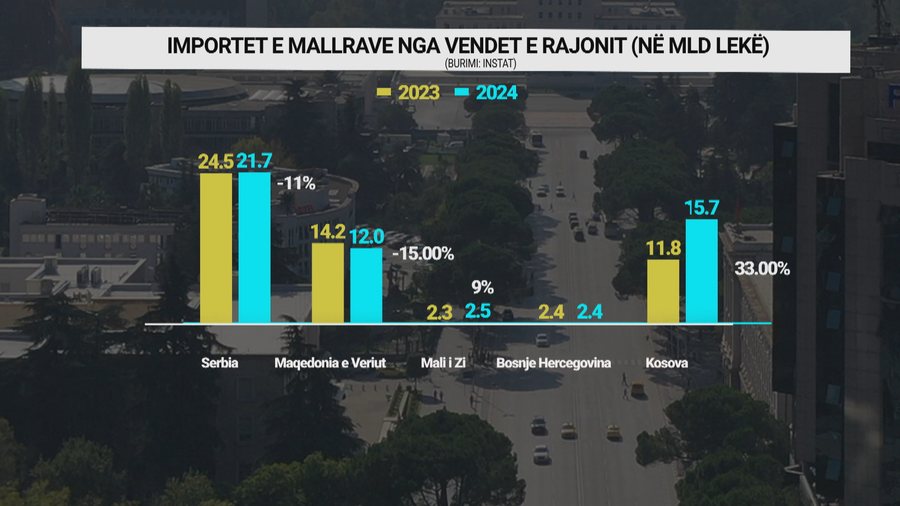
"We have fewer purchases. This is due to the effects of inflation. All countries in the region and beyond have been affected," Alban Zusi, president of the Exporters Association, tells A2 CNN.
Paradoxically to expectations, the strongest decline in imports over the past year was recorded with the two countries in the Region with the highest number of signed agreements: Montenegro and Kosovo.
"A distrust has been created between Kosovo and Albania. Albanian entrepreneurs do business with every direction, except Albanians in Albania. If we were to take for granted what politicians sign, I would say we are finished," says Safet Gërxhaliu, president of the Kosovo Chamber of Commerce.
A similar trend is seen in the other direction, that of exports. Albanian companies sold 11 percent fewer goods in Serbia, 24 percent fewer in North Macedonia, and 24 percent fewer in Bosnia and Herzegovina.
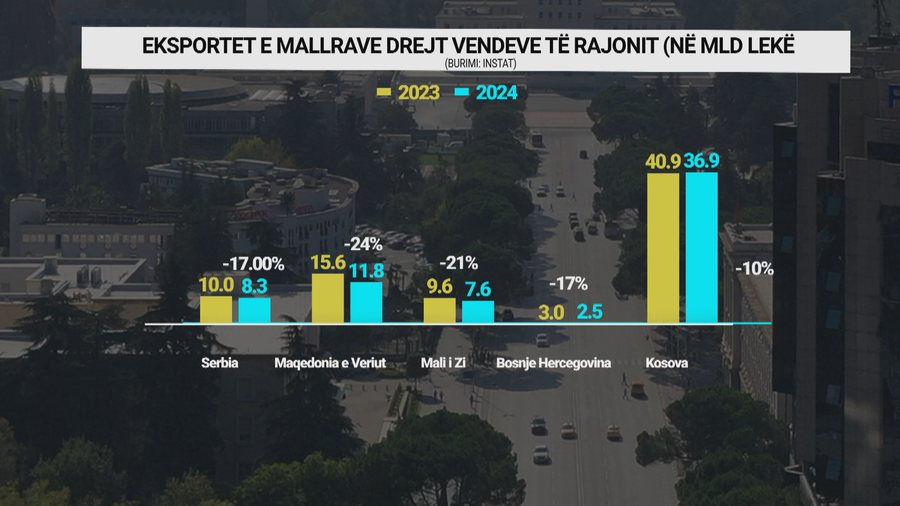
"In Kosovo, we have lost two of the main markets: fruits and vegetables, as well as construction materials. The same thing has happened with other countries in the region," says Zusi.
"Populism with Open Balkans or other initiatives must be put aside. Concrete measures are needed to increase cooperation between the countries of the Western Balkans," says Gërxhaliu.
The contraction of trade between countries in the region has also been influenced by the long waiting times for trucks at customs points. Although there has been a slight easing, trucks waited an average of 1 hour and 20 minutes to export and import products.
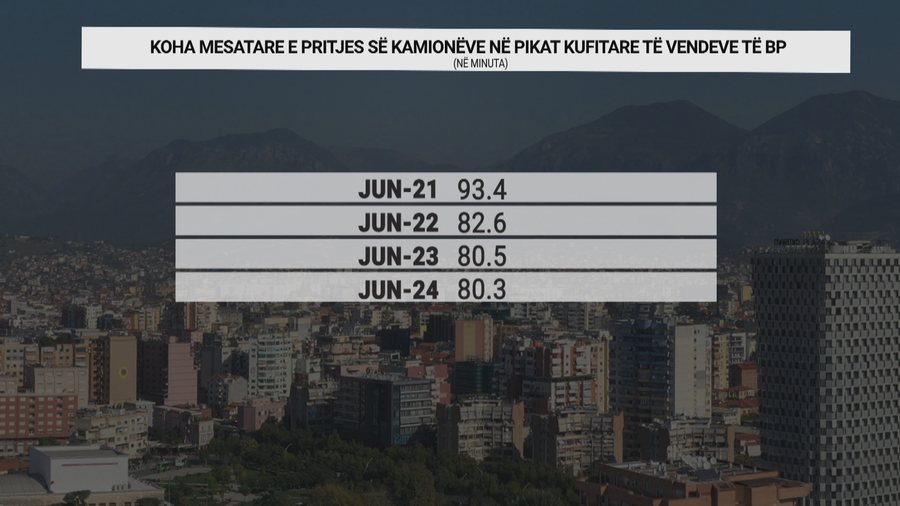 (A2 Televizion)
(A2 Televizion)

